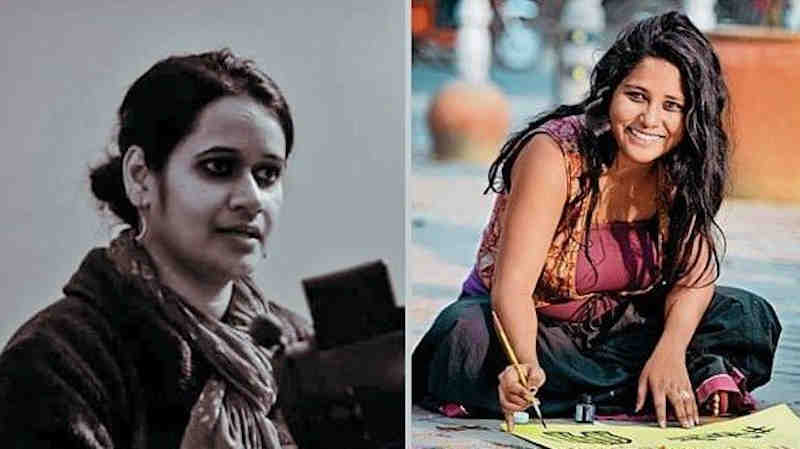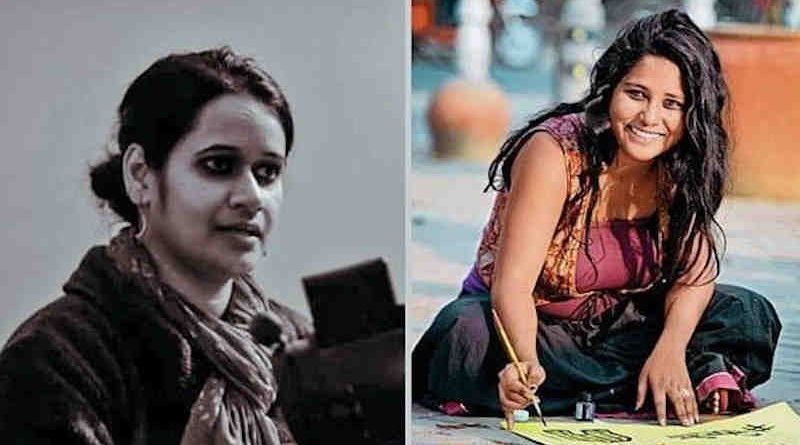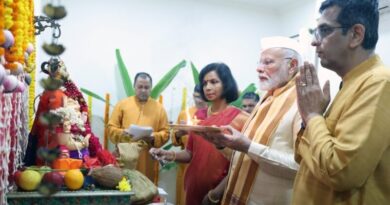Modi Govt Arresting Critics Under the Cover of Coronavirus: New York Times

By RMN News Service
The world’s leading newspaper The New York Times (NYT) has reported that India is struggling to quell the surging coronavirus infections, but the authorities are rounding up government critics and keeping them in detention in the middle of a pandemic.
Quoting various human rights groups, the paper said in its article of July 19 that it is part of a government strategy to stifle activists who are protesting against the callous anti-minority policies of the government headed by Prime Minister Narendra Modi.
In recent weeks, according to the article, nearly a dozen prominent activists — along with potentially dozens of other demonstrators, though police records are unclear — have been detained.
They are being held under stringent sedition and anti-terrorism laws that have been used to criminalize everything from leading rallies to posting political messages on social media.
HUMAN RIGHTS VIOLATIONS
Recently, a group of 99 former civil servants (including IAS and IPS officers) raised deep concern over the increasing lawlessness under the Modi government. In an open letter, they have expressed their displeasure at the assault on the Rule of Law in India and on its citizens’ rights to free speech and dissent, which are the basic elements of any democracy.
These signatories to the letter are particularly concerned about the violation of rights to Freedom of Speech & Expression, Freedom of Assembly, etc., guaranteed by Article 19 of the Constitution.
Their letter states that the police establishments across the country appear to have become proxies for the respective ruling parties and there is flagrant misuse of draconian laws of sedition and the Unlawful Activities (Prevention) Act (UAPA).
The letter says that the misuse of these laws by the Modi government has led to the arrest of journalists, intellectuals, university students, film-makers, human rights activists, and others who dared to criticize the present regime.
A group of UN experts have also called on India to immediately release human rights defenders who have been arrested for protesting against changes to the nation’s citizenship laws.
Earlier, the human rights organization Amnesty International India said that the Government of India’s ongoing crackdown on dissent and free speech is leading to the arrest of journalists, activists, lawyers, and students under repressive laws and being sent to overcrowded prisons which are potential Covid-19 hotspots. This crackdown during the pandemic puts their lives at immediate risk, Amnesty said.
BLOCKED JUSTICE
The NYT article adds reactions of lawyers and rights activists who say that India’s coronavirus restrictions, some of which are still in effect, have blocked pathways to justice. With courts closed for weeks, lawyers have struggled to file bail applications, and meeting privately with prisoners has been nearly impossible.
Law enforcement officials in New Delhi, who are under the direct control of India’s home ministry headed by home minister Amit Shah, have denied any impropriety. But rights groups , according to the article, say the arrests have been arbitrary, based on scant evidence and in line with a broader deterioration of free speech in India.
A recent report released by the Delhi Minorities Commission, a government body, has accused the police and politicians from Modi’s party BJP (Bharatiya Janata Party) of inciting brutal attacks on protesters and supporting a “pogrom” against minority Muslims.
The police have been accused of ignoring complaints against local BJP leader Kapil Mishra who gave a fiery speech threatening to remove protesters forcibly if the authorities did not take action.
In February, the protesters were protesting against the discriminatory anti-Muslim Citizenship Amendment Act (or CAA) introduced by the Modi government.
The NYT article has quoted a New Delhi police superintendent, who spoke on the condition of anonymity, and said that some officers had wanted to act against Mishra, but they were pressured by the force’s leadership not to touch “the warriors of the government.”
“We did not even try,” NYT quoted the police superintendent who added, “The directions were clear: Don’t lay your hands on him.”
COMMUNAL RIOTS IN DELHI
A leader of Delhi chief minister Arvind Kejriwal’s Aam Aadmi Party (AAP) said on July 19 that the violence in Delhi was planned and performed by Modi’s BJP. Sanjay Singh – an AAP Rajya Sabha MP – alleged that the February communal riots that claimed 53 lives were “engineered” by the BJP, which had hatched a “deep conspiracy” ahead of the Delhi Assembly election.
Meenakshi Ganguly, the South Asia director of Human Rights Watch (HRW), said in the NYT article that cases against the activists appeared to be “politically motivated,” and that the police had devised a formula for keeping people in jail: When a judge orders the release of a prisoner for lack of evidence, new charges are introduced.
“The urgency to arrest rights activists and an obvious reluctance to act against violent actions of the government’s supporters show a complete breakdown in the rule of law,” she said.
After PM Modi announced a nationwide lockdown in late March to contain the coronavirus, shutting down businesses and ordering all 1.3 billion Indians inside, the protests discontinued. Lawyers said the police then moved to detain demonstrators while skirting complaints against government allies.
Before the pandemic hit, according to the NYT article, Modi was in the throes of the most significant challenge to his power since becoming prime minister in 2014.
After Parliament passed the CAA last year that made it easier for non-Muslim migrants to become Indian citizens, millions protested across the country. To critics, according to the NYT, the citizenship law was more evidence that Modi’s Hindu nationalist government planned to strip the country’s Muslims of their rights.
According to NYT, tensions peaked in February when sectarian violence and rioting broke out in New Delhi. The vast majority of people killed, hurt or displaced were Muslim, and the police were involved in many of those cases.





